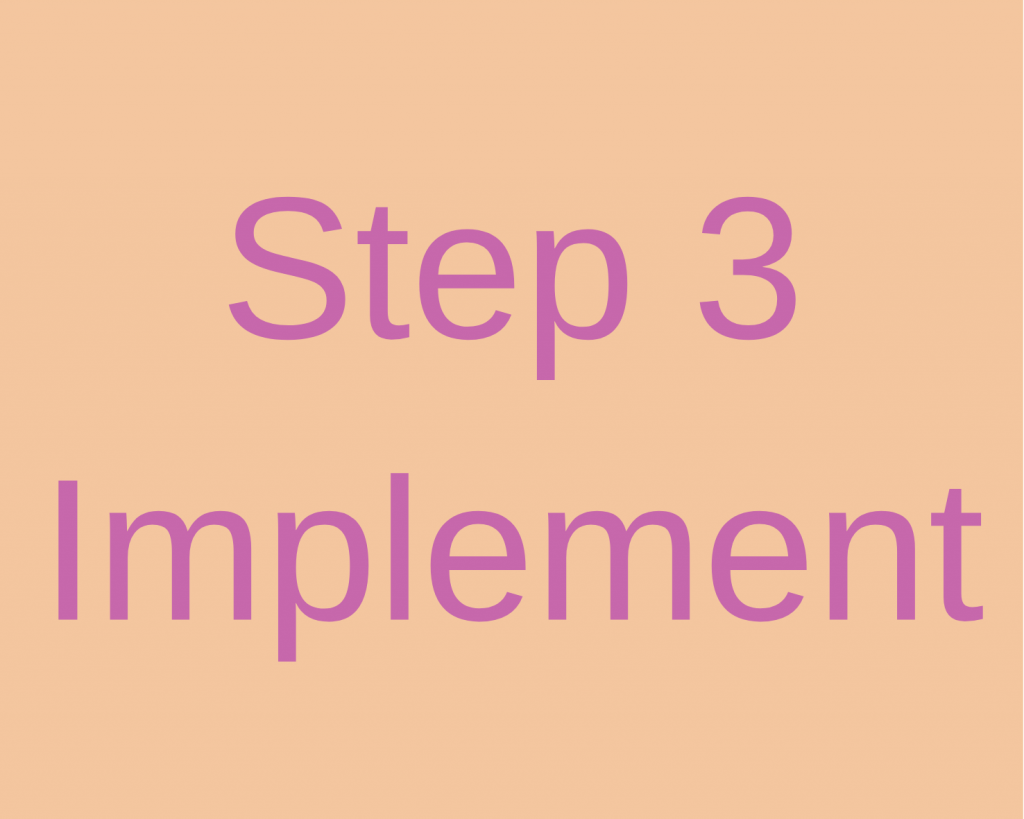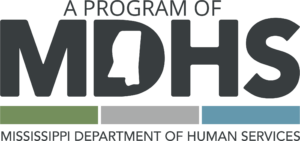Developmental Screening Step 3: Implement
Plan Do Study Act (PDSA) Cycles
Plan-Do-Study-Act (PDSA) cycles are recommended to guide clinic efforts in developing plans, monitoring progress, and sustaining procedural changes. PDSA occurs in cyclical form so that modifications may be made based on what is learned. A one-to-three-week trial of the implementation plan is recommended with re-evaluation of procedures and modifications as needed. This process is repeated until desired objectives are met.
PLAN. Once the QI team is established, assessments are conducted to map the clinic flow, specifically when and where developmental screening occurs among clinics currently screening children. Using the feedback from these sessions, develop individualized protocols that outline the screening process at each point of contact (e.g. check-in, rooming, provider visit, and check-out) and who will perform each task within the clinic flow. In addition to providing information about the screening process, the protocol should also include information detailing how to document screening results, follow-up appointments, and referrals.
DO. Once the screening protocol is finalized, clinics should be given two to three weeks to implement the new screening procedure, choosing to pilot either with a few providers or the entire clinic.
STUDY. At the end of each trial period, the clinic’s CQI team members should meet to discuss any challenges implementing the new screening procedure and determine ways to improve the protocol. If changes are made to the protocol, the clinic will enter a new PDSA cycle.
ACT. At the end of each PDSA cycle one of three outcomes should occur:
- Adopt (integrate the practice given its overall success during one or more cycles)
- Adapt (change the practice before adoption given its modest success or mixed effects)
- Abandon (reject the practice given its failure to yield the expected results and consider other strategies to reach desired results).
About This Resource
The overarching goal of the Child Health and Development Project (Mississippi Thrive!) has been to improve developmental health outcomes for young children through the building of a statewide developmental and behavioral health system. As part of the system build MST worked with health care providers to increase developmental screenings, connect more children to the services they need, and equip providers with materials and resources to promote developmental and behavioral health with caregivers at wellness visits. Additional work was conducted to advance more comprehensive, family-engaged, whole child approaches.
This toolkit provides information about the specific resources and approaches used to support health care providers at the University of Mississippi Medical Center to integrate developmental screening and additional approaches to engage families and conduct comprehensive screening and personalized health promotion into their pediatric practices as well as lessons learned. It was modeled after the Louisiana Developmental Screening Toolkit created by the Developmental Screening Initiative at the Louisiana Bureau of Family Health. It incorporates a Continuous Quality Improvement framework based on the clinical practice guidelines form the American Academy of Pediatrics.
This toolkit was developed by the Mississippi Thrive! Enhanced Pediatric Medical Home Services (EPMHS) team in partnership with The Child and Adolescent Health Measurement Initiative (CAHMI). The Child Health and Development Project: Mississippi Thrive! (CHDP) was a project of the University of Mississippi Medical Center’s (UMMC) Center for the Advancement of Youth (CAY) and the Social Science Research Center (SSRC) of Mississippi State University (MSU).
This project was supported by the Health Resources and Services Administration (HRSA) of the U.S. Department of Health and Human Services (HHS) as part of an award totaling $17.4 million with 0 percent financed with non-governmental sources. The contents are those of the author(s) and do not necessarily represent the official views of, nor an endorsement, by HRSA, HHS, or the U.S. Government. For more information, please visit HRSA.gov today. The Child and Adolescent Health Measurement Initiative (CAHMI) is a national non-profit initiative founded in 1996 to promote the early and lifelong health of children, youth and families using family-centered health and health care quality data and improvement tools and research. The Cycle of Engagement Well Visit Planner approach was developed and is maintained by the Child and Adolescent Health Measurement Initiative (CAHMI).














